SUAT pioneers an innovative development model
Writer: Windy Shao | Editor: Zhang Zhiqing | From: Original | Updated: 2024-10-09
The Shenzhen University of Advanced Technology (SUAT), a recently established institution, is forging a distinctive path as a new type of research-oriented university. During its inaugural ceremony Sept. 29, Fan Jianping, the founding president of SUAT, stressed that the term “new” not only signifies its inception but also its innovative development model.
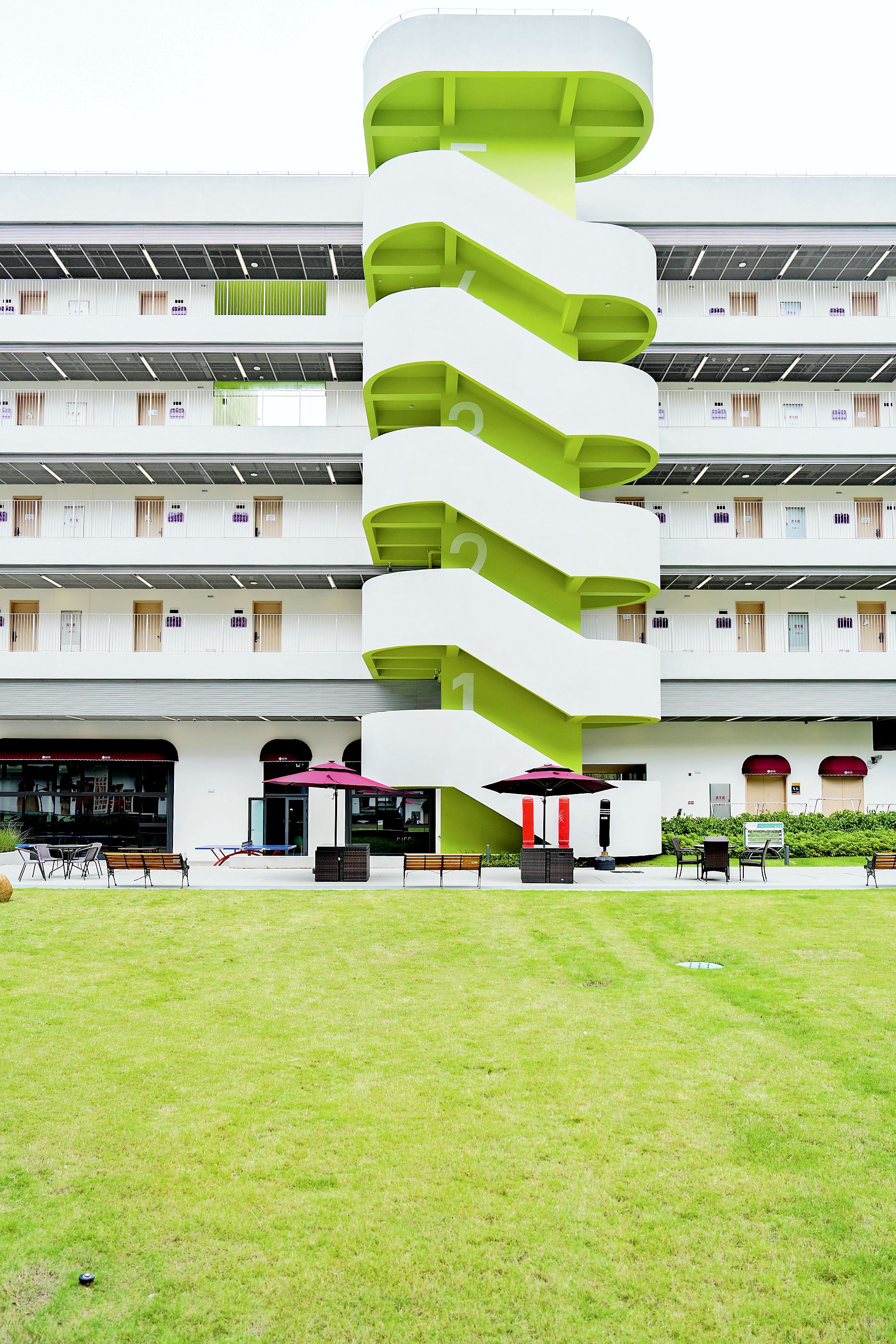
A dormitory building. Photos by Lin Jianping except otherwise stated
Since preparations for SUAT’s opening began in 2018, the university has been dedicated to exploring fresh educational paths that integrate the education chain, innovation chain, talent chain, and industry chain, drawing inspiration from the operational models employed by globally renowned science and engineering universities.
SUAT places particular emphasis on areas such as “new engineering” and “new medical science” that align closely with national strategic industries and Shenzhen’s “20+8” industrial clusters.
Seven interdisciplinary faculties have been established for the fields of Life and Health Sciences, Synthetic Biology, Computer Science and Control Engineering, Biomedical Engineering, Materials Science and Energy Engineering, Pharmaceutical Sciences, and Computility Microelectronics.
In collaboration with national innovation centers and leading enterprises, SUAT has fostered a high-caliber, international, and diverse faculty team. Their innovative educational approach, which is tailored to individual aptitudes and integrates teaching, research, and quality education, aims to nurture future scientists, engineers, and entrepreneurs.
Global talent strategy
“The greatness of a university lies in its masters,” Fan said. To that end, the university has implemented a global talent strategy and established an international faculty management system to recruit world-class professors. Through those efforts, SUAT has assembled a top-tier faculty team with over 70% of faculty members having studied abroad.
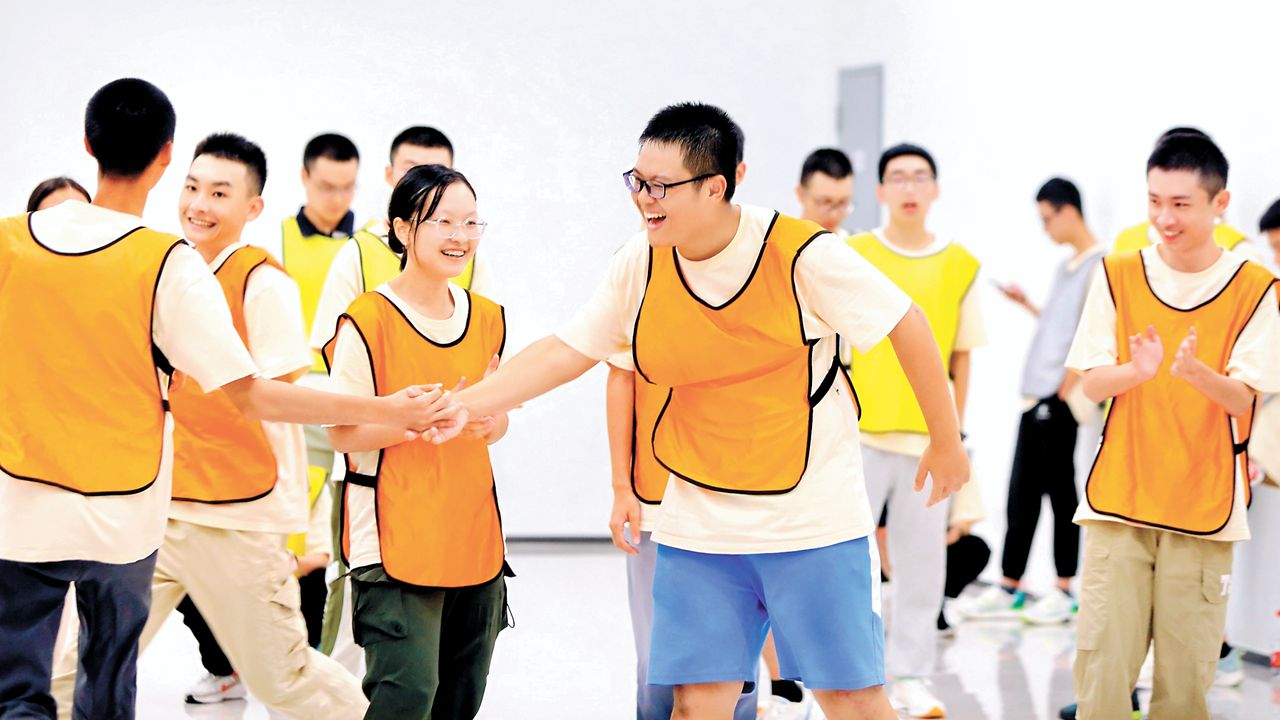
Freshmen interact with each other during a classroom activity. Courtesy of SUAT
Among the faculty are 14 academicians and 88 national-level talent. Approximately 91% of SUAT’s tenured faculty held permanent faculty positions overseas previously. Notably, three foreign experts have received the Chinese Government Friendship Award, while eight overseas innovation teams have been systematically introduced.
To foster collaboration with leading global universities, SUAT has initiated multiple overseas exchanges this year by organizing seven global talent meet-ups in Singapore, Australia, the U.K., Switzerland, and China’s Hong Kong.
Research institutes
In its quest to become a distinct type of research university, SUAT adheres to a philosophy of strategic development that prioritizes focused disciplines and industry engagement.
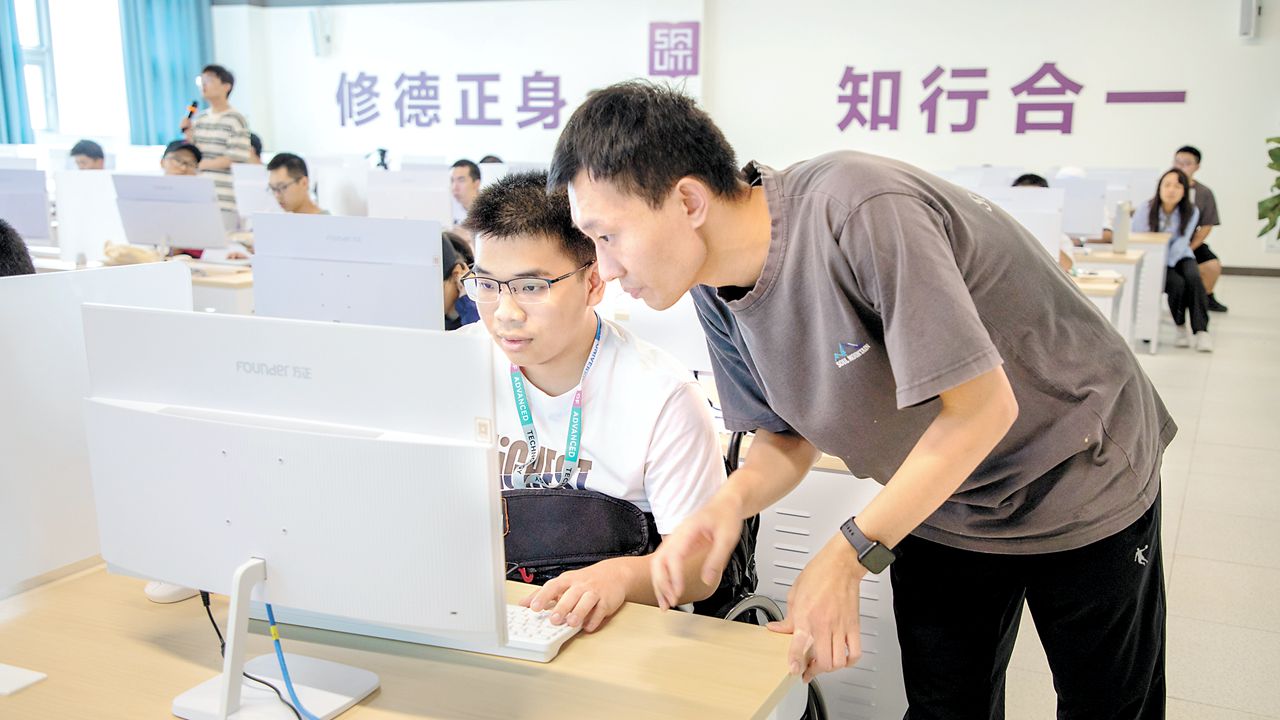
A classroom scene. Courtesy of SUAT
To date, the university has established the Institute of Cell and Gene Technology and the Institute of Future Agriculture. Plans are already underway to establish an Institute of Technology Strategy Development, an Institute of Artificial Intelligence, and an Institute of Robotics.
The Institute of Cell and Gene Technology, led by Kang Le, academician of the Chinese Academy of Sciences and recognized expert in ecological genomics, will focus on developing biotechnologies centered on cell and gene technologies, thereby creating a technology-driven ecosystem for the cell and gene industry.
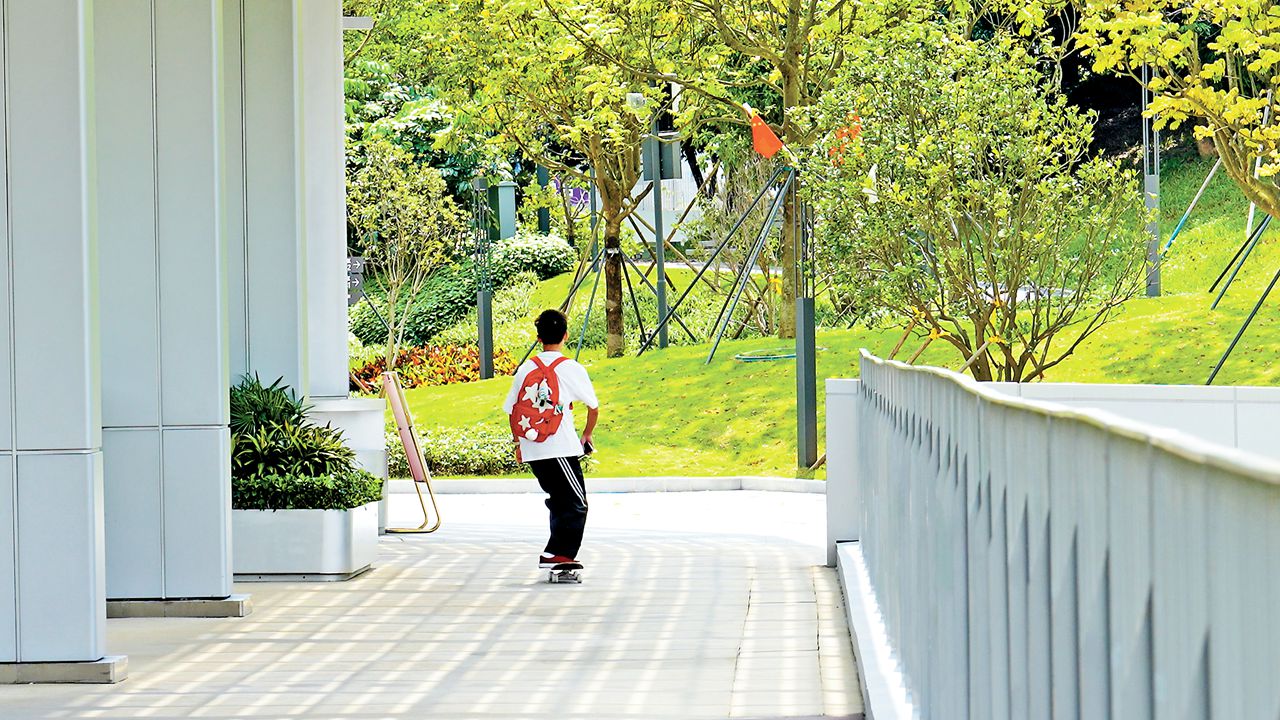
A freshman rides a skateboard to his dormitory from an academic building.
Similarly, the Institute of Future Agriculture, headed by foreign academician Yang Zhenbiao from the European Molecular Biology Organization, aims to develop innovative, next-generation agricultural biotechnologies and production models.

SUAT offers unique undergrad learning schedule
SUAT is piloting an innovative educational model that aims to nurture holistic development among its undergraduate students.
SUAT has established a collaborative talent development framework involving faculties, research institutes, and residential colleges. The faculties focus on academic instruction, while research institutes facilitate internships and practical experience through advanced research platforms and industry connections.
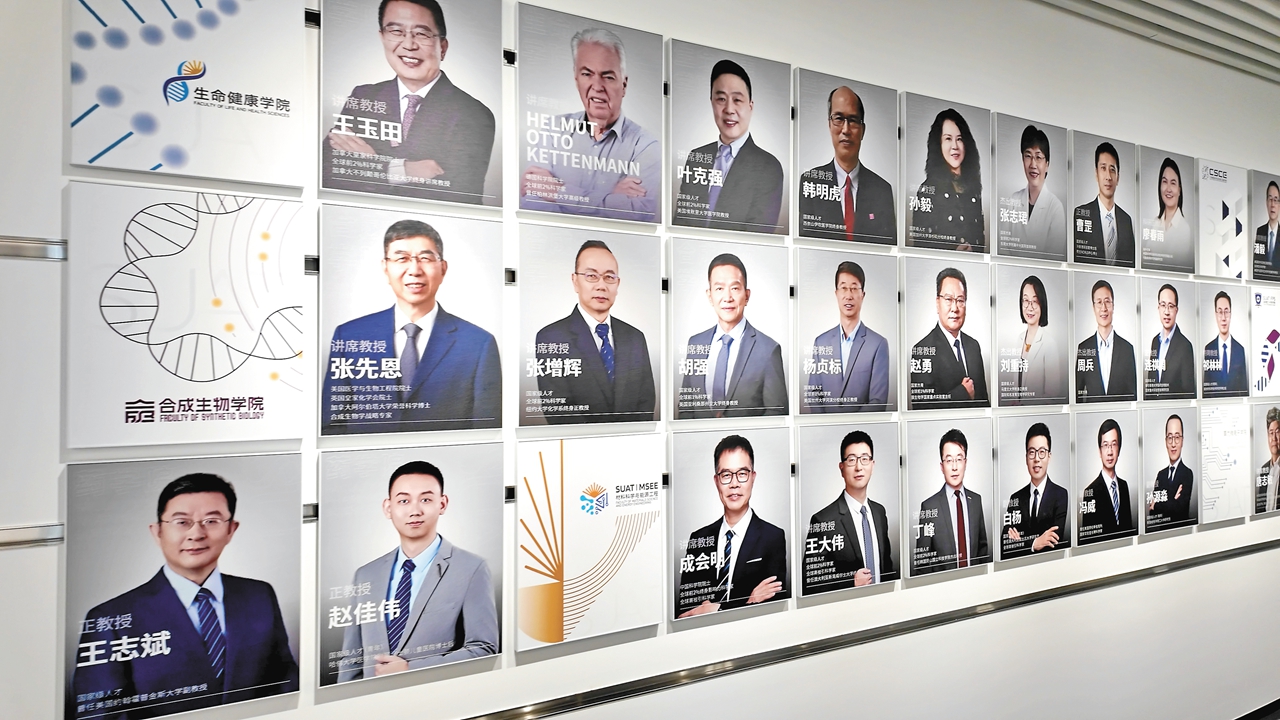
A wall displaying faculty members of SUAT.
Residential colleges, including Dawning College and Yuan Geng College, prioritize comprehensive student development that encourages students to cultivate cultural etiquette, broaden their perspectives, and adopt a scientific worldview.
The ongoing academic year saw the admission of 120 undergraduate students from cities across Guangdong Province, including Guangzhou, Shenzhen, and Foshan. During their first year, the students are busy with foundational studies in computer science and biology under the guidance of academic mentors.
Under a “4+1” learning model, the students attend classes on the first four days of each week and engage in scientific experimentation at research institutes on Fridays. Freshmen rotate through six lab fields, while sophomores can select specific research specialties. Juniors can choose study tracks in academics, engineering, or entrepreneurship. During their final year, students can conduct hands-on scientific research, participate in internships, and even create their own startup companies.
Friday schedules are dedicated to laboratory work, allowing students to immerse themselves in research endeavors — spending approximately 20% of their undergraduate years in key laboratories. SUAT benefits from well-equipped labs, an asset that distinguishes it from many newly established universities, as the university was initiated and established by the Shenzhen Institute of Advanced Technology, Chinese Academy of Sciences.
Among the students benefiting from this unique educational ecosystem is Qiu Linfeng, a graduate of Guangdong Experimental High School. Qiu is currently studying at Dawning College on SUAT’s main campus in Guangming District.
“I feel that SUAT has a wealth of research facilities that have opened my eyes to new possibilities. I can conduct experiments with professors and engage in research to explore unknown areas,” he said.
“My favorite aspect here is the residential college system, which enhances our comprehensive qualities. We share accommodations with students from different majors, which allows us to collide and exchange knowledge from various fields and specialties,” Qiu said.